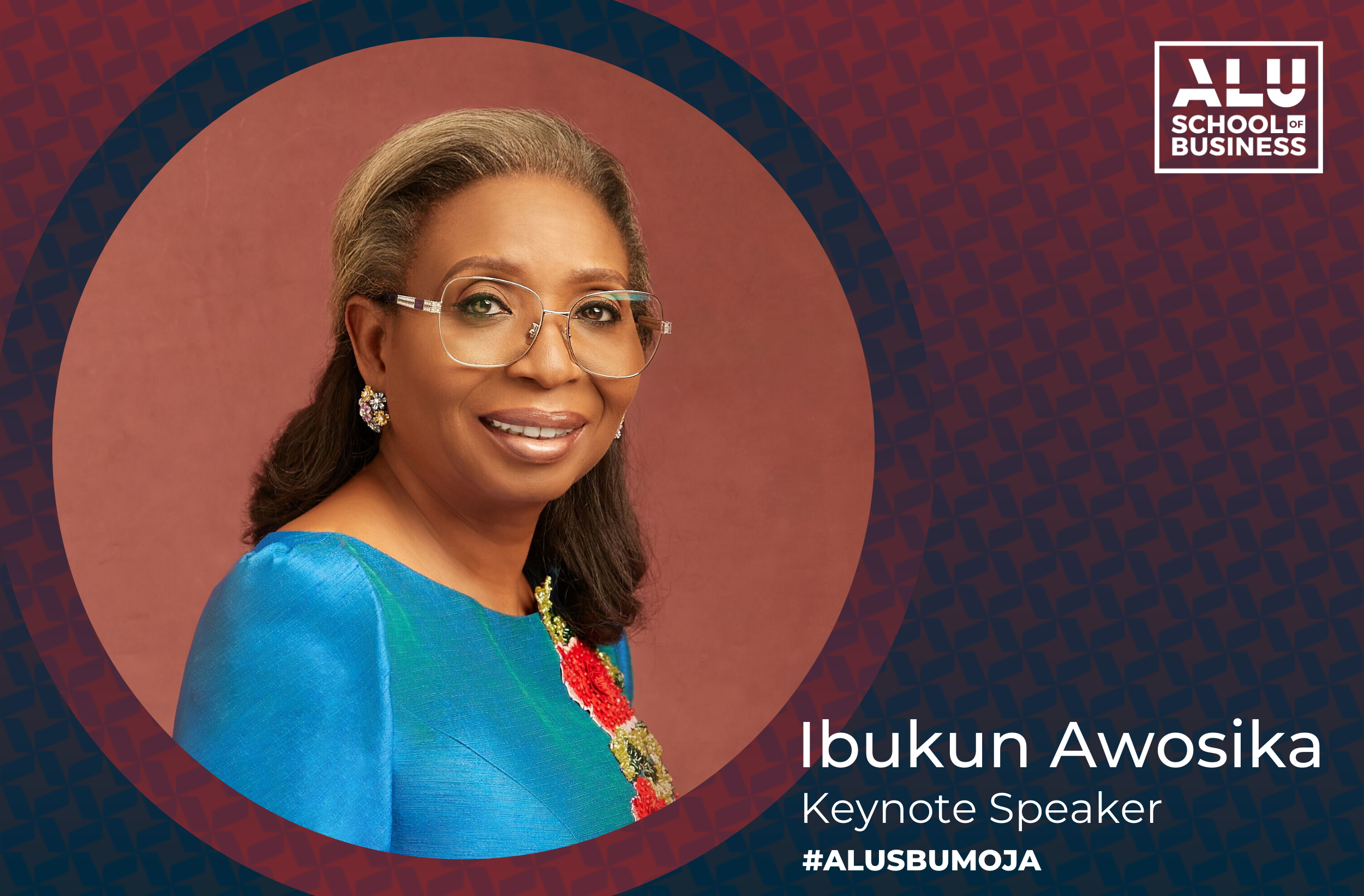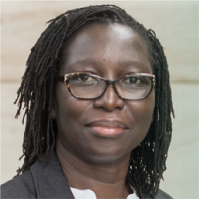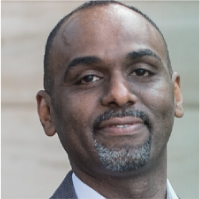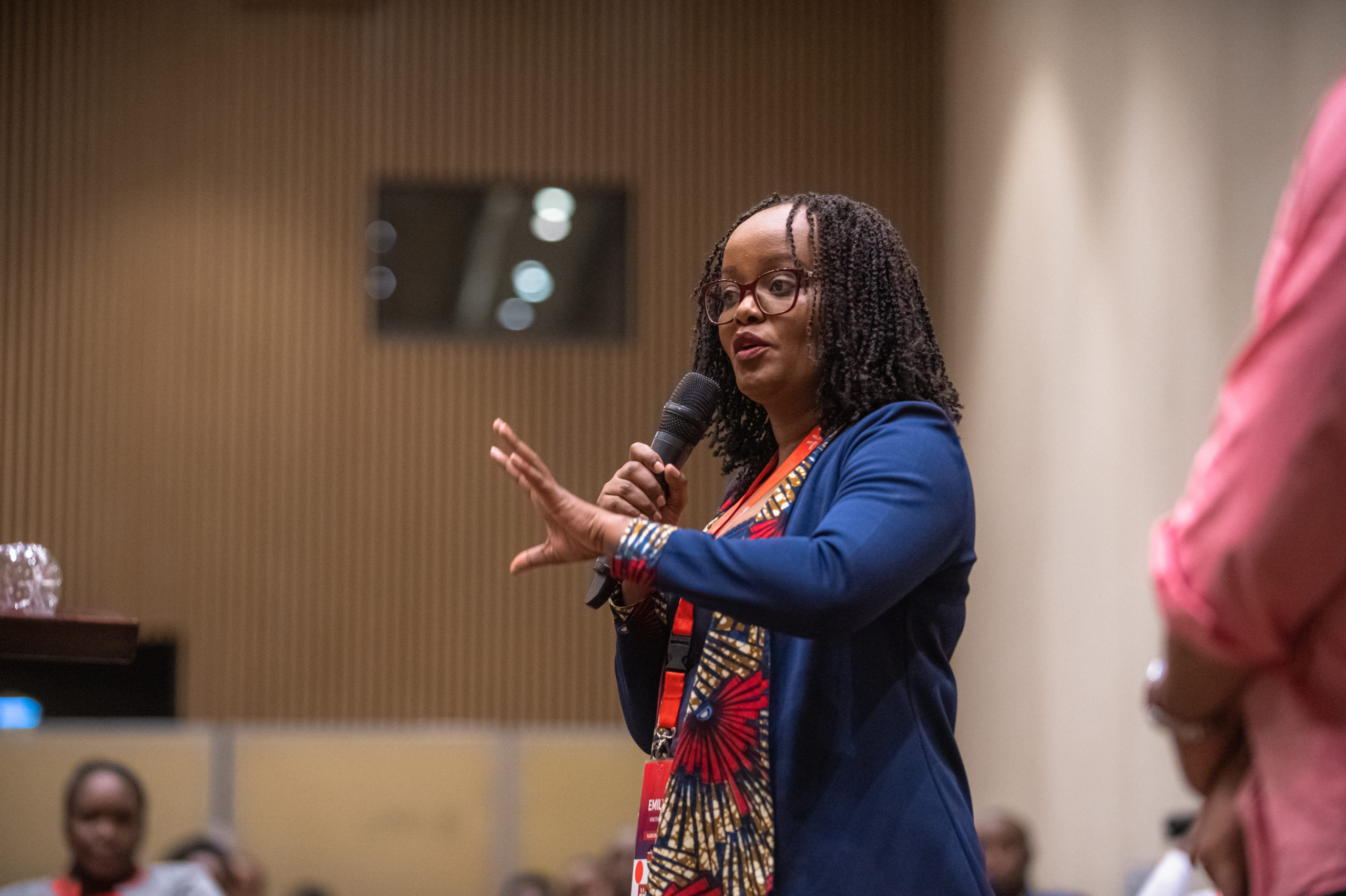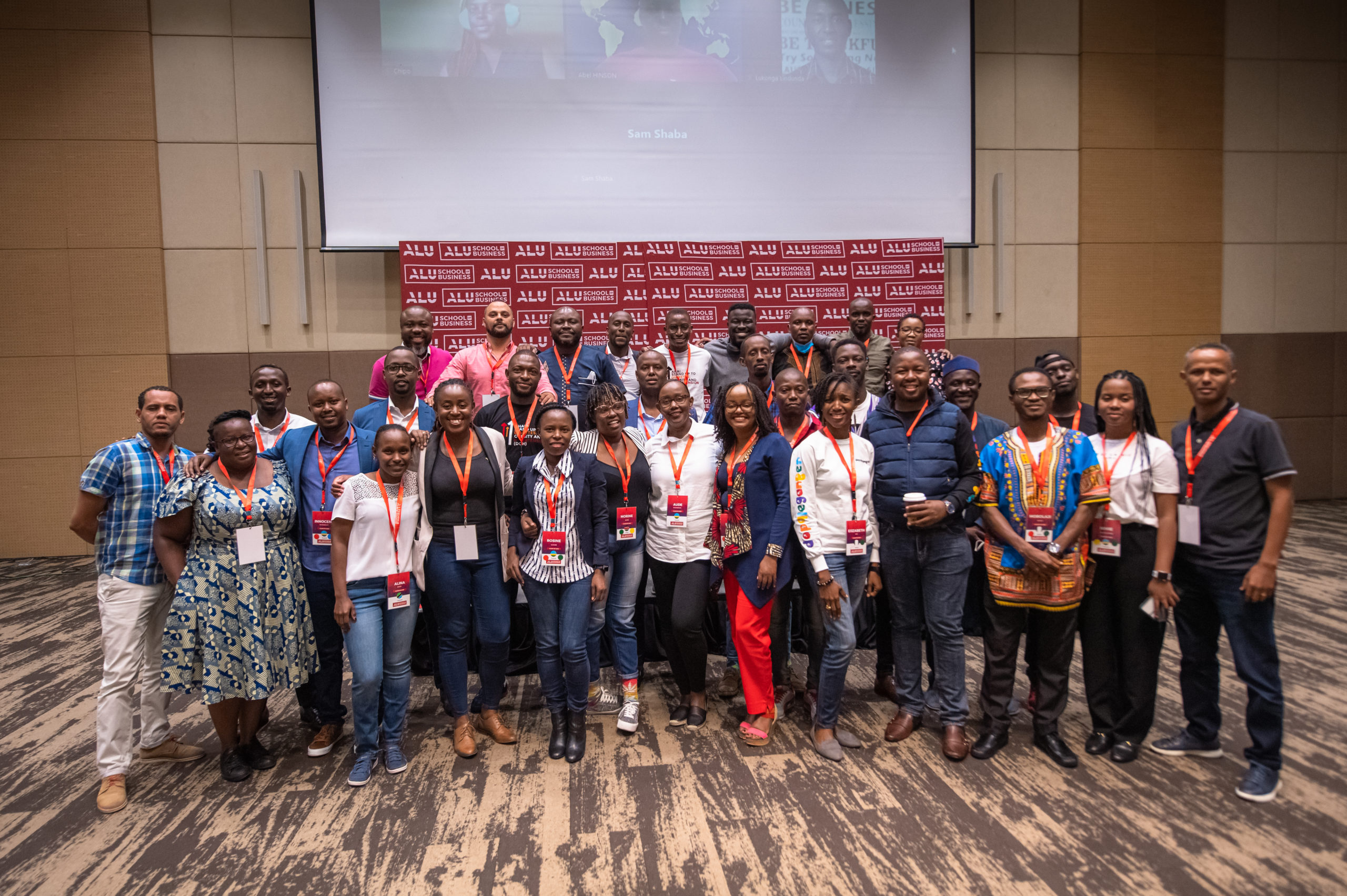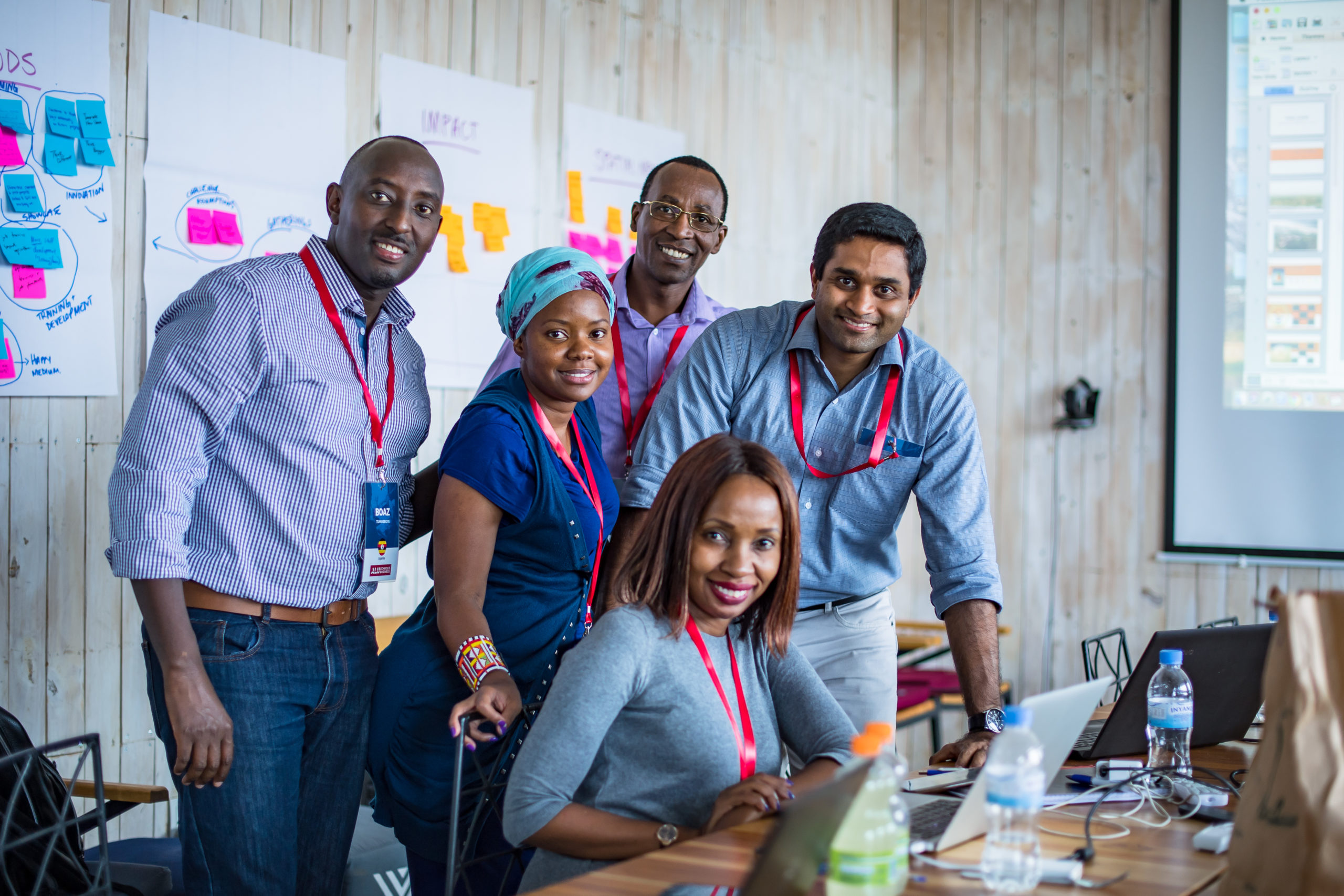Author: Philip Mbwaya, ALUSB Marketing Coordinator
With the recently concluded ALUSB graduation ceremony, we got a chance to sit down with Ibukun Awosika who is the Founder and CEO of The Chair Centre Group and serves as the very first female chairman of the board for First Bank of Nigeria. Ibukun is passionate about social issues, youth, and women empowerment where she was a past chairperson of Women in Business, Management and Public Service.
We were honoured to have Ibukun Awosika as the ALUSB 2020 Graduation Keynote Speaker and have her share some invaluable words of wisdom with the EMBA graduating class of 2020.
We got to have a chat with her ahead of the graduation ceremony to talk about her experience as a successful entrepreneur in Africa as well as her vision and hope for the continent.
Q: How would you describe yourself?
A: I am someone on a mission to fully express myself, my talents, my gifts, and my interests in a way that I can serve my country, serve the world and eventually build a better society – these are the things that drive me.
Q: How did you first cross paths with the African Leadership University? And why have you chosen to honour ALUSB as the graduation ceremony keynote speaker?
A: I knew about Fred Swaniker’s project from the African Leadership Initiative, Aspen Global Leadership Network where we are both leadership fellows. I am impressed by what he has done with his ALG initiative and the impact he is having in terms of building a strategic mindset for future generations of leaders. My son has been part of the ALA summer programme in Johannesburg, and I know a few families whose children have been part of his ALG initiatives.
I, therefore, know for a fact that Fred is doing a strategic leadership development project for Africa’s development. Moving on to set up a university seemed like a natural progression forward for his initiatives and what he is ultimately trying to achieve. If he took the same principles and value systems from ALA and moved it to Business Education, that would have a significant impact.
I have kept an eye on what has been happening without being a part of it directly, so when ALUSB invited me, it was a no-brainer in terms of being able to add value to a fellow’s work. It would also be a chance for me to challenge and hopefully inspire the next generation of African leaders in terms of what they must do for us to build the continent.
Q: From your experience as a successful entrepreneur in Africa, what is the key to doing business in Africa that most people overlook?
A: For you to succeed as a business person in Africa, you need tenacity, a long term view, local market context, and you cannot give up!
For those coming from outside of Africa, you need to realise that Africa is not a village, it is not one country. Africa is made up of 54 countries and there are many countries within countries. Suppose you take my country Nigeria for example. In that case, there are as many countries as there are States within Nigeria, and even within the States, there are communities that have specific characteristics that have business implications. You, therefore, have to have a global approach with a local understanding as well.
You need to build a business within the context of your society, but you must be global in your practice and your value systems and in your dedication to delivering world-class service and product.
Ultimately, every gap you leave is an opportunity for your competition to take you out of business. All they need to do is improve on the things you lack in your business or deliver better quality products than yours at a cheaper price. This is part of how businesses from other Western and Asian countries take away the bread from African companies, even in their market.
One more thing is that we tend to approach business from a point of view of ‘me against them’, which can be against the government or policymakers. We see ourselves as being always on the right and knowing what to do and looking at the people in the public sector as knowing less and causing a lot of problems for business people, which they do in many ways.
However, one of the things I have learnt in my experience is that we have a responsibility to teach them continuously and aggressively in order to educate and empower them to make the right policy decisions that will support our businesses to grow.
The people who have to make those policies are themselves not business people, they have not experienced the business space. Even though they have the best of intentions for their countries, they tend to make the wrong decisions because if their influencers are not right thinking or they are giving them the wrong information, they will make the wrong decisions with the right intentions. We, therefore, have the crucial responsibility of how the business community is shaped. We must all get involved with all of our chambers of commerce, manufacturing associations, and any form of engagement that allows us to educate and to empower the policymakers better to make the right decisions that will help us succeed.
Q: What is your advice to women who aspire to be leaders?
A: I do not think the advice to a woman is any different to the advice to a man because while the most successful institutions will be the wise ones that have diverse leadership which means leadership that is inclusive of both male and female as well as have generational diversity where everybody around the table is not from the same generation. You allow yourself to have a table of men and women from different age groups so you can have the right collaboration of thoughts to engage and make the right decisions.
It is really about the effectiveness of that leadership and you having a sense of what you want and deciding how you live the rest of your life in line with how you are going to achieve that.
If you know that as a woman, you want to have a successful career as well as have a successful home, then it means that you will have to pay attention to who you marry because your spouse is a key factor in your life and it is not an emotional decision that you make without wisdom and concentration of where you want to go. You will therefore need to get the right kind of spouse that can engage with your ambition and drive by supporting and accommodating you through your leadership journey.
Additionally, there are no superwomen. Once you have traditional responsibilities as an African woman, you can still do the things you want to do without abandoning those responsibilities. You can outsource as much as you need to because if you are in leadership and you are successful at what you do, you have the right amount of disposable income that allows you to be able to engage the right kind of support to ensure that you can do the things you are needed to without dropping the ball.
Without a doubt, women can have it all! You need to organise your life to make it work and have the right kind of spouse.
You need to know the things that you will sacrifice to ensure that the things that are important to you work.
Q: Who are some of your leadership heroes?
A: I like the spirit and the thinking of Nelson Mandela. The forgiving and embracing leadership that unifies, I find that attractive in a leader. I like the open and free-spirited nature yet diligent and efficient leadership of the New Zealand prime minister Jacinda Arden. She delivers on her goals and her assignment to her country. For me, it is leadership with a heart that attracts me because you can be both kind and firm, you can be acutable and still be loving. It is finding and embracing leadership that helps to build a better community.
Q: What is your prediction for Africa in the next 10 years? What are you most excited about?
A: From what the American elections have taught us in the past years is that prediction is a very risky business. I think what I know is we have the right kind of generational age group and if we handle them right and give them the right tools to work combined with the wisdom of the generations before that, we organise ourselves to allow compassionate visionary leadership to emerge, the whole world will have no choice but to stand in amazement as Africa reveals itself. I think there is so much that can work for us right now but there is so much that can go wrong as well. For me it is not about 10 or 20 years, it is about the blocks that we choose to build right now, I have the hope and faith that we will get there!
Q: What is your piece of advice to the graduates?
A: The world is yours to define and that there are boundless opportunities on the continent waiting for people to take them up. That to whom much is given, much is expected, they are the privileged ones. Much has been given to them for them to get here, now they need to show up and apply what has been given to them for the benefit of the continent.
Want to be part of the next generation of African leaders? Start your ALUSB EMBA application here.
